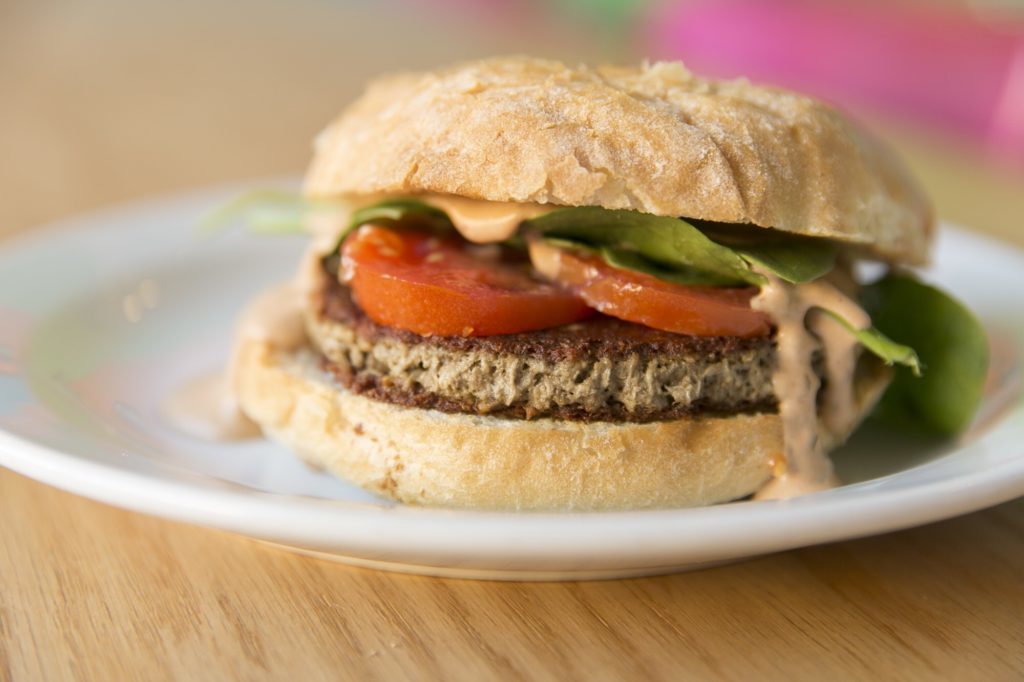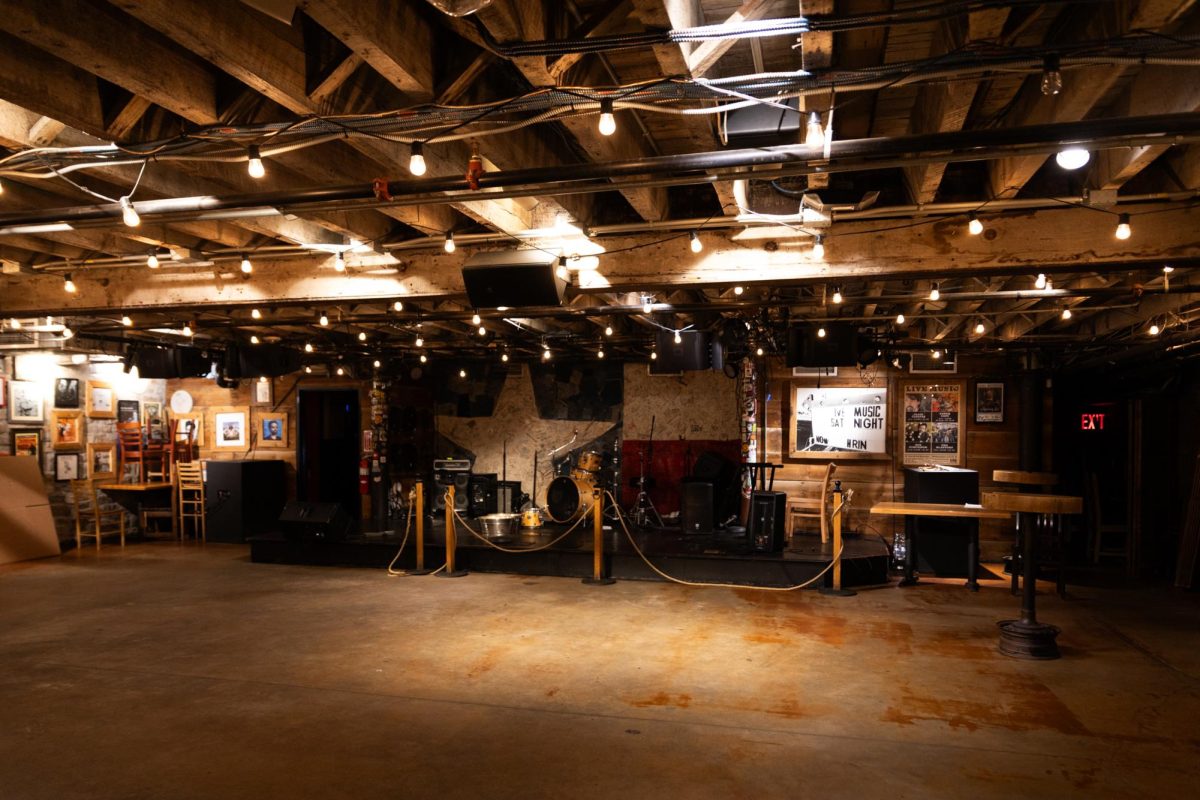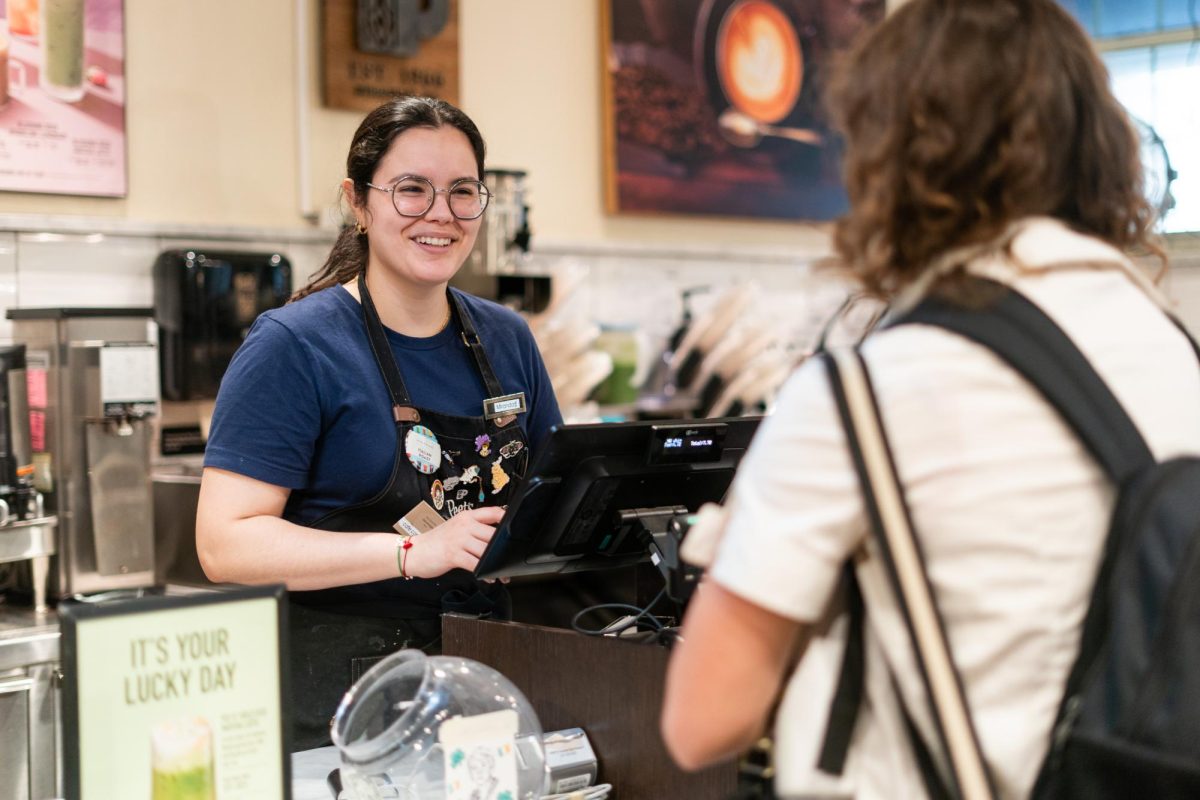An increasing number of D.C. restaurants are adding burgers to their menus – but without the meat.
Plant-based burgers like the “Impossible” and “Beyond” burgers have landed in more than 35,000 locations across the world and at least 30 locations in the District. Restaurant owners and chefs who serve the burgers said their high demand from both vegetarians and meat eaters frequently leaves them out of stock.
“Customers love having something they enjoy, as well as something their non-vegan guests will enjoy,” Doron Petersan, the chef and owner of Fare Well, said in an email. “We don’t have to convince anyone that they will enjoy it. It’s gained so much popularity that it sells itself.”
Two companies – Impossible Foods and Beyond Meat – have challenged traditional American cuisine with their meatless burgers, beef and sausage that are made to bleed and taste like real meat. The burgers are made from ingredients like plant protein, coconut oil and a molecule called heme, which gives the food its burger flavor.
The main difference between Impossible and Beyond burgers is the ingredients. Impossible burgers contain soy protein, sunflower and coconut oils and potato protein, while Beyond burgers are made from pea protein, canola and coconut oils, potato starch and beet juice extract.
Beyond Meat sells to grocery stores like Whole Foods, and Impossible Foods distributes to restaurants only. Both companies aim to decrease human dependence on livestock and minimize unsustainable practices in the meat industry like mass land usage and high carbon dioxide emission levels.
Impossible Foods’ website states that its products use 96 percent less land and 87 percent less water than animal food products. Beyond Meat reportedly uses 99 percent less water and 93 percent less land than a beef burger would require.
Several D.C. restaurants have embraced the popularity of plant-based burgers, adding Impossible and Beyond burgers to their menus.
Petersan, Fare Well’s owner and chef, said the restaurant serves an entirely plant-based menu to encourage healthier eating habits. In addition to plant-based burgers, Fare Well offers dishes like “Southern Fried Wings” made from chickpeas and burrata cheese.
Fare Well carries the Impossible burger, selling about 60 per day. The Impossible burger is the restaurant’s most popular burger offering, selling three times more than any other plant-based burger it has tried serving, Petersan said.
“There is still quite a bit of work to be done in terms of getting people to choose vegan eating – whether or not they adhere to a vegan lifestyle – on a more regular basis,” Petersan said.
Bareburger DC in Dupont Circle offers a menu with both meatless and beef burgers, including both the Impossible and Beyond burgers. Jonathan Lemon, the joint’s director of culinary operations, said he originally added the Impossible burger in 2017 to diversify the menu, and it has since grown in popularity.
The Impossible burger accounts for 15 percent of burger sales, beating out Beyond burger sales, he said. The restaurant serves between 20 to 40 Impossible burgers per day and 10 to 30 Beyond burgers, compared to 220 to 260 beef burgers, Lemon said.
Lemon said the Impossible burger is favored by meat-eaters, and vegetarians and vegans prefer Beyond burgers because they do not have the same authentic beef taste.
“There’s definitely a difference in taste,” Lemon said. “The flavor of the Impossible burger is a little more like beef. Not only just the taste, but the appearance, the inside of the burger is pink, like it’s medium rare.”
An Impossible burger patty has 240 calories, and the Beyond burger has 250 calories. A beef patty typically has between 300 and 350 calories. Lemon said the difference in calorie content between plant-based and beef burgers is nominal, but the biggest chasm between the two brands is their environmental impacts.
Animal agriculture takes up about half of the land on earth, expends a quarter of freshwater resources and harms ecosystems, according to Impossible Foods’ website.
“The main thing I think you get out of our plant-based options are, it’s better for the environment and you’re doing something toward the future, and I think if everybody participated, we’d be a lot better off,” Lemon said.
Thunder Burger, a burger joint on GWorld, began selling the Impossible burger a year ago after several customers requested a plant-based alternative to a hamburger. The supply of Impossible burgers frequently ran out when it was added to the menu, prompting the restaurant to add the Beyond burger.
At least three restaurants that take students’ GWorld, including Thunder Burger, Whole Foods and Bryson’s Cafe, offer Impossible or Beyond burgers on its respective menus.
Moe Idrissi, the owner of Thunder Burger, said the vendor often sells out of Impossible burgers because it needs to compete with the high demand from customers and fast-food chains like Burger King that have also begun selling these plant-based meats.
At Thunder Burger, 70 percent of its vegetarian sales are attributed to Impossible and Beyond burgers, Idrissi said. Idrissi said customers sometimes come into the restaurant to eat only if the Impossible and Beyond burgers are in stock.
“From what I understand, the manufacturer can’t keep up,” Idrissi said. “They’re just overwhelmed.”
Sidney Lee contributed reporting.








